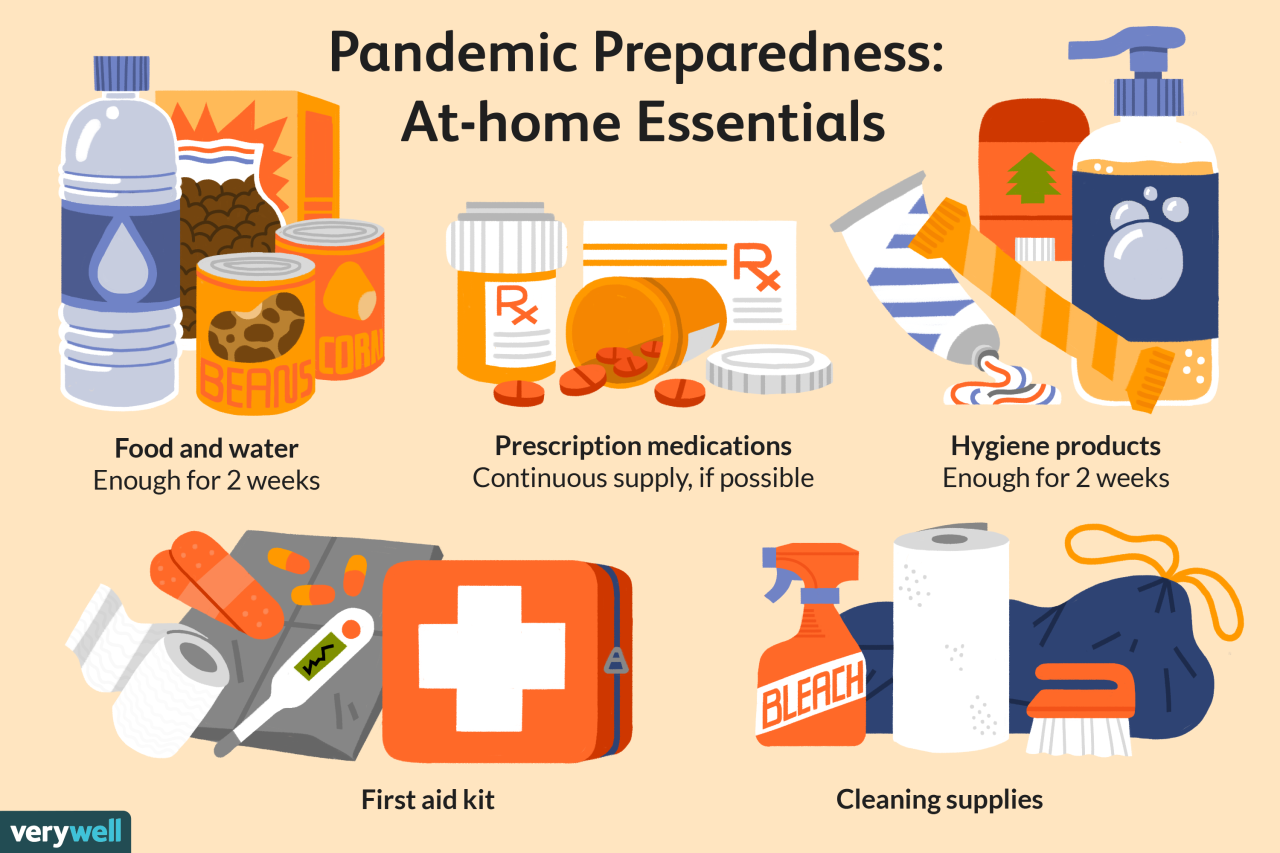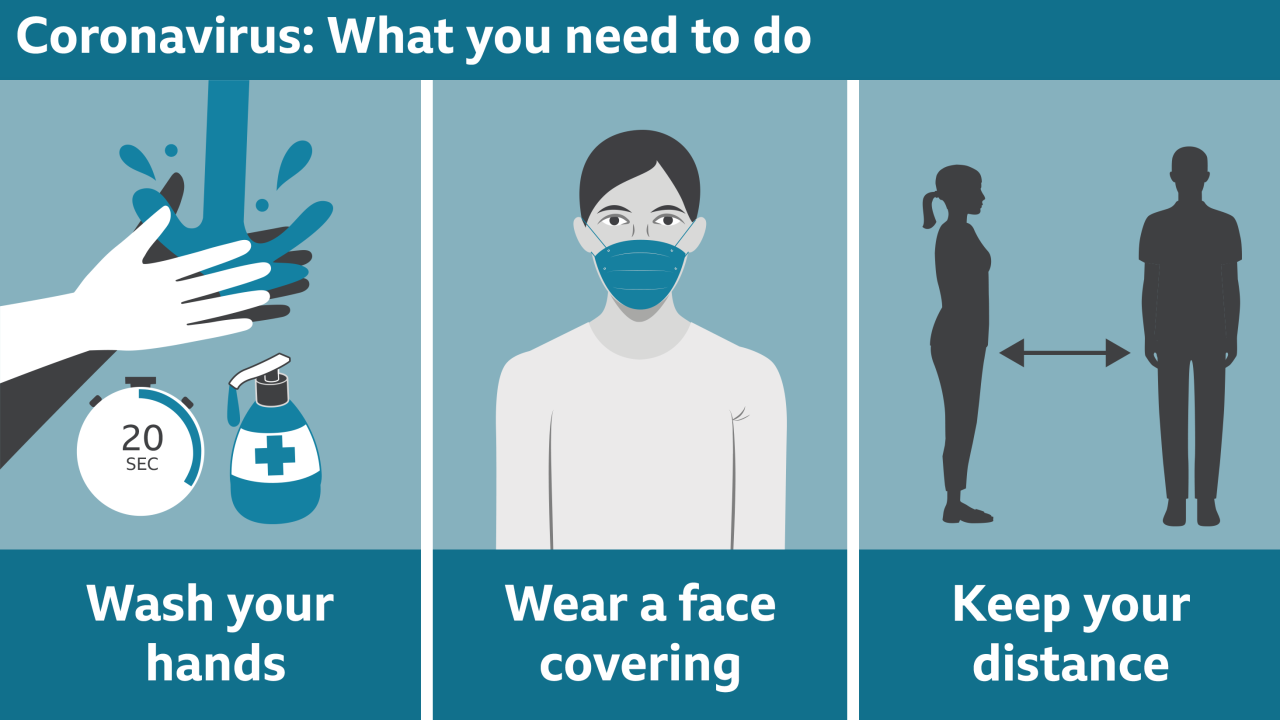Crafting the Best: Best Practices for Post-Pandemic Health Routines

Embark on a journey into the world of post-pandemic health routines, where the importance of well-being takes the spotlight. With a focus on physical exercise, healthy eating habits, and mental health strategies, this guide aims to provide valuable insights for a healthier post-pandemic life.
Importance of Post-Pandemic Health Routines

Establishing post-pandemic health routines is crucial for overall well-being as it helps individuals regain control over their physical and mental health after the challenging times brought on by the pandemic. By prioritizing these routines, individuals can take proactive steps towards maintaining a healthy lifestyle and boosting their immune system.
Benefits of Maintaining a Consistent Health Routine
- Improved Physical Health: Regular exercise and healthy eating habits can contribute to better physical health, reducing the risk of chronic diseases such as heart disease and diabetes.
- Enhanced Mental Well-being: Engaging in activities that promote mental health, such as meditation or yoga, can help reduce stress and anxiety levels, improving overall mental well-being.
- Boosted Immune System: Following a consistent health routine can strengthen the immune system, making individuals less susceptible to illnesses and infections.
- Increased Energy Levels: By maintaining a healthy routine, individuals can experience higher energy levels throughout the day, leading to increased productivity and overall well-being.
Prioritizing Health Routines to Prevent Future Health Issues
Prioritizing health routines is essential in preventing future health issues as it allows individuals to actively monitor their health and address any potential concerns before they escalate. By taking preventive measures through regular exercise, balanced nutrition, and adequate sleep, individuals can significantly reduce the risk of developing health problems in the future.
Physical Exercise in Post-Pandemic Health Routines
Regular physical exercise is crucial for maintaining overall health, especially in a post-pandemic world where sedentary lifestyles have become more prevalent. Engaging in various types of physical activities not only helps in improving physical fitness but also boosts mental well-being.
Here, we will explore different types of physical exercises suitable for post-pandemic routines, provide examples of home-based exercises, and discuss the importance of regular physical activity.
Types of Physical Exercises
- Aerobic Exercises: Activities like brisk walking, running, cycling, or dancing that increase heart rate and improve cardiovascular health.
- Strength Training: Using resistance bands, bodyweight exercises, or weights to build muscle strength and endurance.
- Flexibility Exercises: Stretching routines like yoga or Pilates to improve flexibility, reduce muscle tension, and prevent injuries.
- Balance and Coordination Exercises: Exercises that focus on stability and coordination, such as tai chi or specific balance drills.
Home-Based Exercises
- Bodyweight Exercises: Squats, lunges, push-ups, and planks can be done at home without the need for any equipment.
- Yoga and Pilates: Online classes or instructional videos can guide you through routines that improve strength, flexibility, and mental focus.
- Cardio Workouts: High-intensity interval training (HIIT) or dance workouts can be done in limited spaces to elevate heart rate and burn calories.
- Resistance Band Workouts: Using resistance bands for exercises targeting different muscle groups can provide a challenging workout at home.
Importance of Regular Physical Activity
Regular physical activity post-pandemic is essential for maintaining a healthy weight, reducing the risk of chronic diseases, improving immune function, and enhancing mental well-being. Exercise also helps in managing stress, improving sleep quality, and boosting overall quality of life. By incorporating a variety of physical exercises into your routine, you can ensure a well-rounded approach to maintaining your health in the post-pandemic era.
Healthy Eating Habits Post-Pandemic

Maintaining healthy eating habits post-pandemic is crucial for overall well-being and immune system function. After the pandemic, focusing on nutrition can help individuals recover and maintain good health.
Creating a Balanced Diet Plan
- Include a variety of fruits, vegetables, whole grains, lean proteins, and healthy fats in your meals.
- Avoid processed foods, sugary drinks, and excessive salt intake to reduce the risk of chronic diseases.
- Plan your meals ahead of time to ensure you are getting all the necessary nutrients your body needs.
Role of Nutrition in Boosting Immune System
Eating a well-balanced diet rich in vitamins, minerals, and antioxidants can help boost the immune system post-pandemic. Nutrients like vitamin C, vitamin D, zinc, and probiotics play a vital role in supporting immune function.
Remember, a healthy diet is not only about weight management but also about providing your body with the essential nutrients it needs to function optimally.
Mental Health and Well-being Strategies

Mental health is a crucial aspect of post-pandemic recovery as individuals navigate the challenges and uncertainties brought about by the global health crisis. It is essential to prioritize mental well-being in order to establish a sense of balance and resilience in the face of ongoing changes and stressors.
Techniques for Managing Stress and Anxiety
- Practice mindfulness and meditation to reduce stress levels and promote relaxation.
- Engage in regular physical exercise to release endorphins and improve mood.
- Establish a daily routine to create structure and stability in your day-to-day life.
- Connect with loved ones and seek social support to share feelings and experiences.
- Limit exposure to negative news and information that may contribute to feelings of anxiety.
Connection between Mental Well-being and Physical Health
There is a strong correlation between mental well-being and physical health, highlighting the importance of addressing both aspects in holistic health routines. When individuals prioritize their mental health, they are better equipped to make positive lifestyle choices that support their overall well-being.
Stress and anxiety can have a significant impact on physical health, leading to issues such as insomnia, high blood pressure, and weakened immune function. By incorporating strategies to manage mental health, individuals can improve their physical health outcomes and enhance their resilience in the face of challenges.
Final Thoughts
In conclusion, adopting best practices for post-pandemic health routines is not just a trend but a necessity for a thriving future. By prioritizing physical and mental well-being, individuals can pave the way for a healthier and happier life ahead.
Helpful Answers
How important are post-pandemic health routines?
Establishing post-pandemic health routines is crucial for overall well-being as they help prevent future health issues and maintain a healthy lifestyle.
What are some examples of home-based exercises for post-pandemic routines?
Home-based exercises like yoga, bodyweight workouts, and brisk walking are great options for incorporating physical activity into daily routines.
How does nutrition play a role in boosting the immune system post-pandemic?
Nutrition plays a vital role in boosting the immune system and overall health post-pandemic by providing essential nutrients for optimal functioning.
Why is mental health important in post-pandemic recovery?
Mental health is crucial in post-pandemic recovery as it influences overall well-being and helps individuals cope with stress and anxiety effectively.
What is the connection between mental well-being and physical health in establishing holistic health routines?
Mental well-being and physical health are interconnected in establishing holistic health routines as a healthy mind contributes to a healthy body and vice versa.




